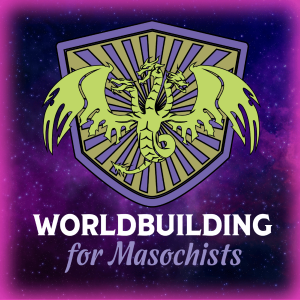
- Podcast Features
-
Monetization
-
Ads Marketplace
Join Ads Marketplace to earn through podcast sponsorships.
-
PodAds
Manage your ads with dynamic ad insertion capability.
-
Apple Podcasts Subscriptions Integration
Monetize with Apple Podcasts Subscriptions via Podbean.
-
Live Streaming
Earn rewards and recurring income from Fan Club membership.
-
Ads Marketplace
- Podbean App
-
Help and Support
-
Help Center
Get the answers and support you need.
-
Podbean Academy
Resources and guides to launch, grow, and monetize podcast.
-
Podbean Blog
Stay updated with the latest podcasting tips and trends.
-
What’s New
Check out our newest and recently released features!
-
Podcasting Smarter
Podcast interviews, best practices, and helpful tips.
-
Help Center
-
Popular Topics
-
How to Start a Podcast
The step-by-step guide to start your own podcast.
-
How to Start a Live Podcast
Create the best live podcast and engage your audience.
-
How to Monetize a Podcast
Tips on making the decision to monetize your podcast.
-
How to Promote Your Podcast
The best ways to get more eyes and ears on your podcast.
-
Podcast Advertising 101
Everything you need to know about podcast advertising.
-
Mobile Podcast Recording Guide
The ultimate guide to recording a podcast on your phone.
-
How to Use Group Recording
Steps to set up and use group recording in the Podbean app.
-
How to Start a Podcast
-
Podcasting
- Podcast Features
-
Monetization
-
Ads Marketplace
Join Ads Marketplace to earn through podcast sponsorships.
-
PodAds
Manage your ads with dynamic ad insertion capability.
-
Apple Podcasts Subscriptions Integration
Monetize with Apple Podcasts Subscriptions via Podbean.
-
Live Streaming
Earn rewards and recurring income from Fan Club membership.
-
Ads Marketplace
- Podbean App
- Advertisers
- Enterprise
- Pricing
-
Resources
-
Help and Support
-
Help Center
Get the answers and support you need.
-
Podbean Academy
Resources and guides to launch, grow, and monetize podcast.
-
Podbean Blog
Stay updated with the latest podcasting tips and trends.
-
What’s New
Check out our newest and recently released features!
-
Podcasting Smarter
Podcast interviews, best practices, and helpful tips.
-
Help Center
-
Popular Topics
-
How to Start a Podcast
The step-by-step guide to start your own podcast.
-
How to Start a Live Podcast
Create the best live podcast and engage your audience.
-
How to Monetize a Podcast
Tips on making the decision to monetize your podcast.
-
How to Promote Your Podcast
The best ways to get more eyes and ears on your podcast.
-
Podcast Advertising 101
Everything you need to know about podcast advertising.
-
Mobile Podcast Recording Guide
The ultimate guide to recording a podcast on your phone.
-
How to Use Group Recording
Steps to set up and use group recording in the Podbean app.
-
How to Start a Podcast
-
Help and Support
- Discover

What can translation and transmission of ideas and stories over time teach us about a society -- and about storytelling? Guest Ken Liu joins us to talk about the intertwining of philosophy, imagination, and translation. As writers, we can never fully translate the story that plays out in our heads onto the page, because every reader will imagine something a little different. How do we embrace that and celebrate it as a lovely part of the human condition?
This plays into how we construct our fictional worlds as well. The stories a culture tells about itself and its past are also always acts of translation, taking "what really happened" and putting a spin on it. Why do the people in your invented societies frame stories in the way that they do? How can thinking about the relationship between words, power, leadership, and culture help us build more creativey and inventively?
[Transcript TK]
Our Guest:
Ken Liu (http://kenliu.name) is an American author of speculative fiction. A winner of the Nebula, Hugo, and World Fantasy awards for his fiction, he has also won top genre honors abroad in Japan, Spain, and France.
Liu’s most characteristic work is the four-volume epic fantasy series, The Dandelion Dynasty, in which engineers, not wizards, are the heroes of a silkpunk world on the verge of modernity. His debut collection of short fiction, The Paper Menagerie and Other Stories, has been published in more than a dozen languages. A second collection, The Hidden Girl and Other Stories, followed. He also penned the Star Wars novel, The Legends of Luke Skywalker.
He’s often involved in media adaptations of his work. Recent projects include “The Message,” under development by 21 Laps and FilmNation Entertainment; “Good Hunting,” adapted as an episode in season one of Netflix’s breakout adult animated series Love, Death + Robots; and AMC’s Pantheon, with Craig Silverstein as executive producer, adapted from an interconnected series of Liu’s short stories.
Prior to becoming a full-time writer, Liu worked as a software engineer, corporate lawyer, and litigation consultant. He frequently speaks at conferences and universities on a variety of topics, including futurism, machine-augmented creativity, history of technology, bookmaking, and the mathematics of origami.
In addition to his original fiction, Liu also occasionally publishes literary translations. His most recent work of translation is a new rendition of Laozi’s Dao De Jing.
Liu lives with his family near Boston, Massachusetts.
More Episodes
 2025-04-09
2025-04-09
 2024-12-04
2024-12-04
 2024-11-20
2024-11-20
 2024-11-06
2024-11-06
 2024-10-09
2024-10-09
 2024-09-25
2024-09-25
 2024-08-28
2024-08-28
Create your
podcast in
minutes
- Full-featured podcast site
- Unlimited storage and bandwidth
- Comprehensive podcast stats
- Distribute to Apple Podcasts, Spotify, and more
- Make money with your podcast
It is Free
- Privacy Policy
- Cookie Policy
- Terms of Use
- Consent Preferences
- Copyright © 2015-2025 Podbean.com



